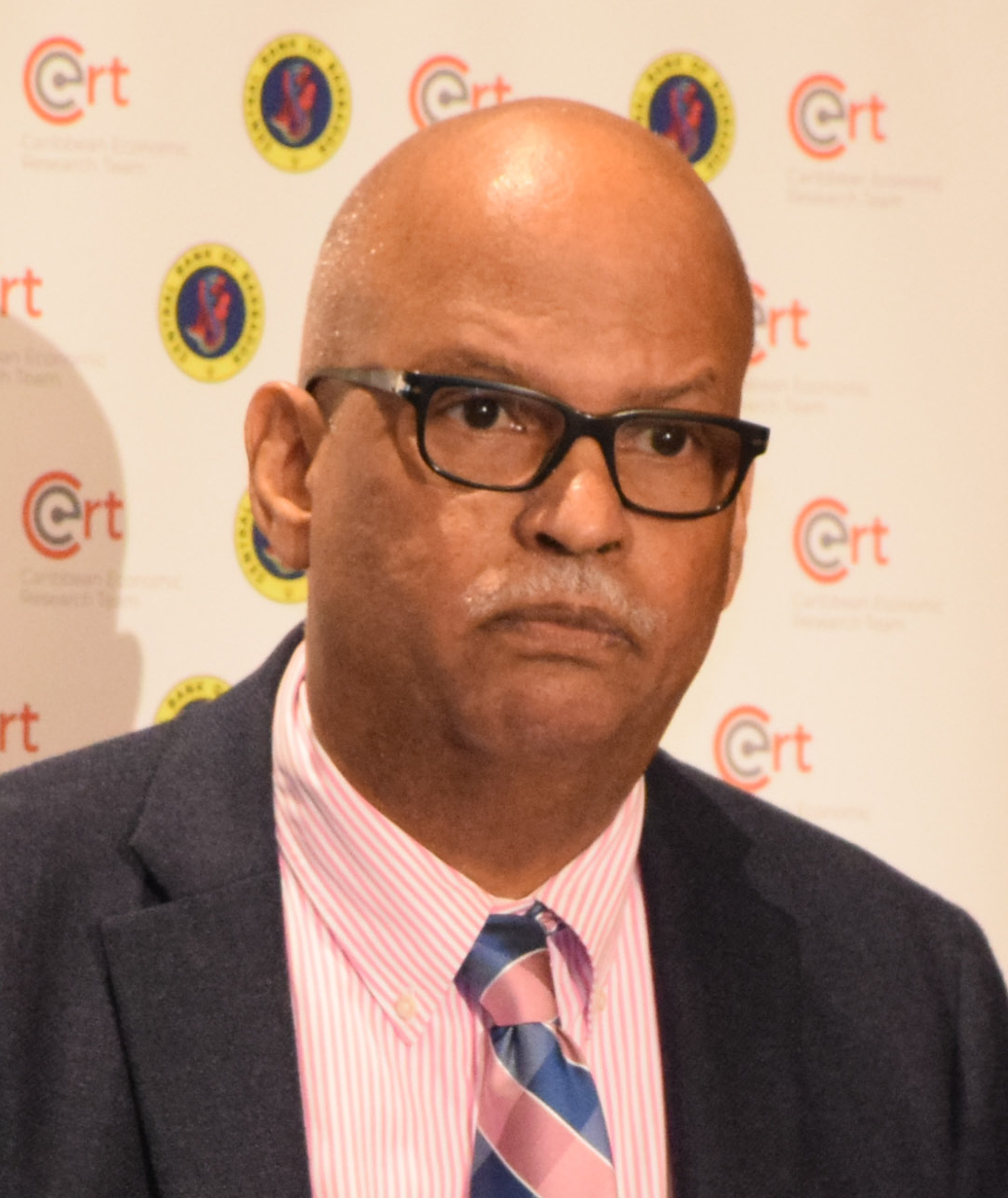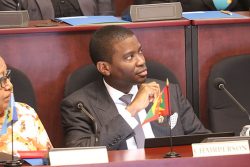As a soon to be oil producing nation, Guyana cannot afford bureaucratic delays in doing business, according to Inter-national Monetary Fund (IMF) Mission Chief to Guyana Dr. Arnold McIntyre.
“To ensure that the no-oil economy continues to expand, one cannot sit on one’s laurels. You have to pursue the improvement to infrastructure, improve the ease of doing business,” McIntyre said during a recent interview with Trinidadian economist Marla Dukharan.
Last year, Guyana dropped eight places in the World Bank’s rankings for the ease of doing business, falling to a ranking of 134 out of 190 countries, from a ranking of 126 in 2017.
2016 had seen one of the country’s biggest gains in recent years on the ranking as it had moved up a whopping 16 places to 124 from 140 in 2015. In 2014, the country was ranked at 132.
The World Bank’s business scoring captures the gap between an economy’s performance and its measure of best practice across a sample of 41 indicators for 10 ‘Doing Business’ topics, such as the number of procedures required for starting a business, the shortest time to start a business and the lowest cost to start a business.
The World Bank Group’s ‘Doing Business 2019: Training for Reform’ report found that to start a business in Guyana, one would have to complete seven procedures that could take up to 18 days. It found also that when dealing with construction permits, a business has to complete 17 procedures and this can take up to a whopping 208 days, while getting electricity can see one spending 82 days to get eight procedures completed. To register a property, six procedures have to be completed and some 45 days can be spent doing so.
In the Caribbean, Jamaica was ranked at 75, The Bahamas was ranked at 118 and the Dominican Republic at 102.
McIntyre said that bureaucratic delays in doing business is a problem in most Caribbean countries but as a soon to be an oil producing nation where there would be significant interests in investments, Guyana could not afford to not address these issues.
Throughout Caribbean, he said, there is a real challenge between the public sector and the private sector in the whole question of the economic sector about bureaucratic delays and Guyana cannot ignore them.
He noted the investments Guyana needs to make to modernise its public service, while saying that in addition to modernising the public service it would also go a long way towards improving the quality of the business environment and the competitiveness.
United States Ambassador Sarah-Ann Lynch has been telling the private sector that challenges to the business climate have to be addressed.
“Over the last three years, the US Embassy has experienced a steady increase of inquiries from companies at various stages of the foreign investment process who are interested in working in Guyana. These companies are not just in the oil and gas sectors. We see interest from companies working in engineering, healthcare, telecommunications, infrastructure, air transportation, and information technology, just to name a few. Guyana has burst onto the world stage and is no longer the hemisphere’s best kept secret,” she told had told the Annual General Meeting of the Private Sector Commission (PSC) in June.
“Some of you have heard me say, promoting responsible and sustainable economic growth is one of my top priorities as Ambassador. Oil production will begin in a few short months, so the growth part will take place regardless, Ensuring responsibility and sustainability, though, will require effort on everyone’s part,” she added.
But the US envoy also noted challenges to doing business here, even as she urged the PSC to act on pressing for changes.
Noting Guyana’s ranking on the World Bank’s index, she said places like Iran and the West Bank and Gaza ranked better than Guyana. “Some of the contributing issues highlighted in the report include taxation, energy, and infrastructure, intellectual property rights (IPR), bureaucracy, and lack of transparency, corruption, and citizen security. Guyana’s complex tax structure often leads to companies paying higher tax rates than they would in other countries. In addition, the duties imposed on many imported items can be substantial, driving costs up beyond competitiveness… Other infrastructure gaps include lack of a transnational road network and a deep-water port, which, if addressed, would decrease the time and cost of transporting goods,” Lynch said.
“As with many governments around the world, the bureaucracy could benefit from streamlining and modernisation. Acquiring permits and buying land requires patience, and several government agencies still rely on paper. Obtaining proper visas or work permits in a timely manner is becoming a growing concern for foreign companies and organisations – your future potential business partners. Corruption continues to be a perennial concern, but Guyana has made significant strides on this front and I’m sure it will continue to do so. Changes to the financial sector, combined with the creation of the Financial Intelligence Unit, resulted in the IMF officially removing Guyana from the European Commission’s list of countries deemed deficient in anti-laundering frameworks in February. Intellectual Property Rights legislation needs updating to match advancements in technology,” she had added.






